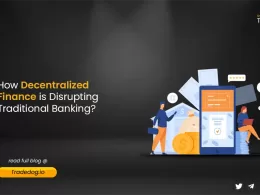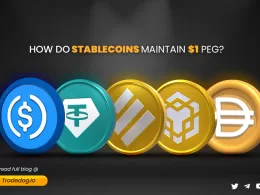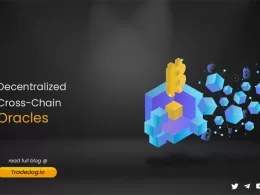Quick Links
The world of web hosting is continuously evolving. One of the most notable trends is the rise of decentralized web hosting. This approach to web hosting involves distributing website data across a network of computers, enhancing security, reliability, and resilience. In this beginner’s guide, we will explore the fundamentals of decentralized web hosting, explore popular platforms, and describe the process of hosting a decentralized website. We will also discuss the benefits, challenges, and future potential of decentralized web hosting and websites.
Decentralized web hosting is an innovative way to host websites on a cross-connected network of computers rather than on centralized servers. This strategy makes websites more resistant to hacking, censorship, and downtime. The decentralized web, called Web 3.0, relies on peer-to-peer (P2P) networks, blockchain technology, and distributed ledger systems for smooth operation. Unlike traditional web hosting, which depends on a single server or a group of servers, decentralized web hosting removes a single point of failure and distributes website data across numerous nodes.
Decentralized Web Hosting Platforms
Various platforms have been developed to support decentralized web hosting. Some of the most popular ones include:
IPFS (InterPlanetary File System)
IPFS is a Peer to Peer hypermedia protocol to create a faster, more secure, and open for all web. It replaced the conventional, centralized web model with a distributed network, enabling users to access and host content in a decentralized manner. DTube, a decentralized video platform similar to YouTube but without a central authority, is one well-known example of a website built on IPFS.
Ethereum
It is a decentralized platform that supports the building and execution of smart contracts, enabling developers to build decentralized applications (DApps) and websites. Ether (ETH) facilitates transactions on its network. One example of a website hosted on Ethereum is CryptoKitties. Users can collect, breed, and trade virtual cats in this decentralized game.
Blockstack
A platform that supports developers to make decentralized applications and websites. A decentralized domain name system (DNS), the Blockstack Naming System (BNS), is used to register domain names. An example of a Blockstack application is Graphite Docs, a decentralized option to Google Docs that offers secure, encrypted document storage and collaboration.
Holochain
Holochain is an open-source framework designed for building fully distributed, p2p applications. It allows developers to create scalable, energy-efficient applications that harness the power of distributed computing. An example of a Holochain-based application is H-REA, a resource planning and accounting tool for distributed and cooperative organizations.
Hosting a Decentralized Website
To host a decentralized website, follow these general steps:
- Find and decide decentralized web hosting platform – Do preliminary research and choose a platform that meets your needs. Consider factors such as ease of use, scalability, and available developer tools when making your decision.
- Build your website – Use the appropriate tools and frameworks your chosen platform provides. For example, if you’re using Ethereum, you may need to learn Solidity (a programming language for writing smart contracts) and use tools like Truffle Suite to develop your decentralized website.
- Register a decentralized domain – Some platforms have domain registration systems (e.g., Ethereum Name Service for Ethereum and Blockstack Naming System for Blockstack). Registering a decentralized domain ensures your website is accessible via a user-friendly URL.
- Launch your website – Follow the platform-specific guidelines to deploy your website on the decentralized network. This process may involve uploading your website files to the network, configuring smart contracts, or setting up nodes to serve your content.
Functioning of Decentralized Websites
Decentralized websites work by sending the website’s data across multiple nodes within a P2P network. When users open the website, their browser accesses the data from the nearest or active available node. This process decreases latency and makes the website accessible even if some nodes go offline. The decentralized nature of these websites makes it difficult for any single entity to have complete control or censor the content, creating a genuinely open and transparent environment.
Advantages of Decentralized Websites
Improved security
Decentralized hosting reduces the risk of hacking and DDoS attacks. Users can also maintain their privacy and choose to hide their identity or share only the data they want. One example of this is Brave browser, through which users can choose what content they want to run and what not, and what information they want to share with the websites.
Resistance to censorship
Since no entity controls them, Censoring or shutting down decentralized websites is difficult for governments or other organizations. This empowers freedom of expression and access to information, even in regions with strict internet controls.
Enhanced reliability
The interconnected web nature of the network ensures better uptime and data redundancy. Even if some nodes fail, decentralized websites can continue to operate, providing a more consistent user experience.
Challenges of Decentralized Websites
Adoption
Even though the idea of decentralized websites and web hosting is exciting, it is still a relatively new concept and widespread adoption may take time. Businesses are still unsure about the differences and how they can be benefitted from shifting to decentralized websites, hence it might take some time for them to understand the benefits and adopt them.
High Cost
Decentralized websites require people who know how to build websites on blockchains, which is a highly specialized field. Thus they will charge more than a traditional web2 website builder.
Technical Complexity
Decentralized web hosting and development require extensive knowledge and specialization, which may be more complex than traditional web hosting, posing a barrier for some users. There may be a steeper learning curve for developers and users new to P2P networks, blockchain, and distributed systems.
Future Potential of Decentralized Web Hosting and Websites
With the internet continuing to evolve and some actions of governments and other prominent organizations deciding to shut down platforms, the demand for more secure, private, and censorship-free platforms is growing. Decentralized web hosting and websites have the potential to reshape the way we interact online. As the technology matures and becomes more accessible, we can expect more significant adoption of decentralized web hosting, leading to a more resilient and inclusive internet ecosystem.
In the future, decentralized web hosting will become the standard for online businesses and organizations, prioritizing security, privacy, and censorship resistance. As more people become aware of the benefits of decentralized web hosting, we can expect more innovative use cases and applications to emerge.
Moreover, with the growing importance of data privacy and security, decentralized web hosting can help users regain control of their online data. Decentralized platforms often prioritize confidentiality and encryption, making it more difficult for third parties to access user information without consent.
Conclusion
In this blog, we gave a brief introduction to the concept of decentralized web hosting, popular platforms, and how to host a decentralized website. By exploring the strength, weaknesses, opportunities, and threats, you can determine whether it is the right fit for your web hosting needs. As the future of the internet continues to evolve, decentralized web hosting will play an essential role in shaping a more secure, private, and resilient digital world.
While it may not yet be mainstream, as the technology grows and adoption increases, we can expect to see more decentralized websites and applications becoming a significant part of the internet landscape.In my perspective, these hosting platforms could become more interactable for people who are not from a tech background, maybe by the introduction of some other no-coding website makers or other tools.









